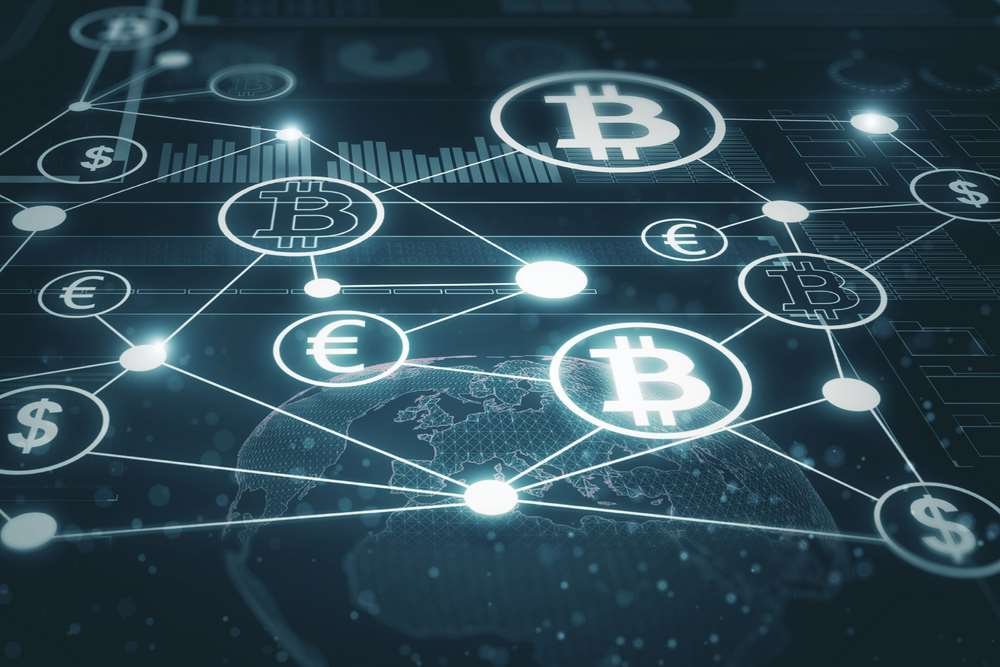What does 2020 have in store for blockchain and global economics?
Published by Gbaf News
Posted on January 16, 2020
5 min readLast updated: January 21, 2026

Published by Gbaf News
Posted on January 16, 2020
5 min readLast updated: January 21, 2026

By Andrew Keys, Managing Partner at DARMA Capital
The bubble and burst of cryptocurrency in 2017 led to the industry suffering from a collective hangover in 2018 and 2019. But in the wake of crypto markets’ irrational exuberance in 2017 and equally irrational despondency in 2018, the core blockchain community of developers and technologists got to work, heads down, and focused on building infrastructure. Their labour is now bearing fruit, and we’re at the crossroads of the next industrial revolution.
Blockchain is entering a pivotal year in 2020, a period that will decide not just the future of cryptocurrency, but blockchain and the very idea of decentralisation. In light of that, here are 5 predictions for how blockchain will shape the world as we enter a new decade:
The potential for global economic recession looms, sparking trouble for fiat currencies
Economic uncertainty has been looming over the globe for years. It’s not so much a matter of if, but when the house of cards tumbles with major worldwide implications. Europe will likely be the first to hit recession. One look at the five biggest economies in the region and it’s clear. Germany’s Deutschebank is on life support. The United Kingdom has been eating itself with Brexit for years. France is in a state of constant protest. The Spanish and Italian economies are drowning. The European Union is by now only nominally a union, and growing divisions will leave many nations especially vulnerable.
With respect to the USA, the country’s economic state will largely depend on whether China and the US reach a trade deal in 2020. If this happens, the economic will get a tailwind into 2021 and Donald Trump will be re-elected. The house of cards will live another day. If however, there’s no trade deal or no re-election and the global economy is further challenged, the bottom could fall out of Quantitative Easing Mania, and the value of many national currencies around the world will be challenged like never before. The value of fiat currencies could endure a precipitous drop in value via extreme inflation.
Digital assets have exiguous properties similar to gold and oil in that they are provenly scarce. If and when this crisis lands, the digital asset class will be the hedge to traditional central banking systems that resort to printing—and thus depreciating—currencies in times of crisis.
The US playing catch-up after China’s big play in crypto and blockchain
Speaking of China, it’s clear that the company is making its move into the blockchain and crypto space. The country has issued new legislation towards mining, state news channels are praising Bitcoin, and in October 2019 Chinese President Xi Jinping announced governmental support for blockchain technology. China’s central bank will soon test its own digital currency in the cities of Shenzhen and Suzhou with four state-owned commercial banks. Countries like the US, that may have been slugging to take a leading role in supporting blockchain development will be left with little choice but to play catch-up, and the result will be a huge net positive for the industry.
Trillion-dollar companies signalling the climax and end of the 3rd industrial revolution
When the next behemoth rises over a trillion dollar valuation it will stay there. That same company probably won’t pay a single dollar in US taxes, a prime example of vast inequality in the value capture of our economic systems. And it’s only getting worse. Legacy Web 2.0 companies are making billions for the shareholder capital class by using the individual as the product. They’re spilling personal data into the clutches of nefarious actors with alarming regularity. As more and more companies pass the trillion dollar mark, it will signal the blow-off phase of late capitalism. After the inevitable crash, we’ll be faced with a once-in-an-epoch opportunity for more equitable, democratised and sustainable business models to proliferate.
The emergence of a billion dollar DeFi ecosystem
Decentralised Finance will continue to lead the industry in the first quarter of 2020. Over $600 million dollars are currently locked up in decentralised finance platforms and that number will cross one billion in the first half of the year. That said, DeFi organizations will probably have to spend some big legal dollars in compliance and lobbying. Just one example: in all 50 states, a company needs a specific license to lend to retail clients. When DeFi inevitably gets too big to ignore, regulators will roll out the red tape carpet.
The awakening of blockchain’s sleeping giant – the supply chain
Counterfeit goods represent a market of over $1.8 billion dollars annually, with some estimates seeing that number rising over 10% as production and online distribution methods improve. Household names like Louis Vuitton and Levis have been quietly perfecting proof of concept trials with leading blockchain companies to ensure provenance and protect consumers on a global scale. A recent report stated that companies in Western Europe alone are set to save $450 billion dollars in the next fifteen years with blockchain based supply chain solutions, with operating costs reduced almost 1% across the board.
Explore more articles in the Top Stories category











